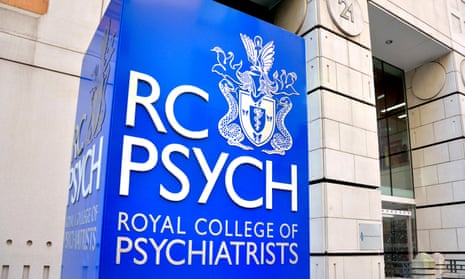More than 100 UK psychiatrists have written to their representative body urging it to root out institutional racism and a colonial mentality in the profession.
In an open letter to the new president of the Royal College of Psychiatrists, Dr Adrian James, who starts in the role on Wednesday, the members say there is a “once-in-a-generation opportunity to put psychiatry at the forefront in tackling systemic racism”.
They write: “We share a history with psychology and psychotherapy of not just ignoring the effects of discrimination, but painting other cultures as psychologically primitive and casting their approaches to understanding distress as backward superstitions.
“For the Royal College of Psychiatrists to be able to advocate on behalf of those most marginalised in our society, it must first put its house in order and root out all examples of institutional racism and colonial mentality in its training curricula and various practice guidelines.”
The letter refers to the collusion of psychiatry in eugenic mass murder in Nazi Germany and the labelling of civil rights protesters and political dissidents as psychotic. But there are also more modern examples, including what Dr Sami Timimi, a signatory and visiting professor at the University of Lincoln and fellow of the college, highlighted as “perceptions of black dangerousness”.
The stereotype has been much discussed in relation to law enforcement, especially in the wake of Black Lives Matter protests, which began over the US police killing of George Floyd, but Timimi said it also existed in mental health services.
“That is still very prevalent in our culture and therefore – not surprisingly – it’s very prevalent in the way we apply our psychiatric technologies,” he said. “So what we see is the label of schizophrenia, which is meant to be the worst type of psychosis that you can have, and is meant to be something with a very poor outlook, it’s disproportionately applied to black people, particularly black men.”
He also cited the fact that black people in England were four times more likely than white people to be detained under the Mental Health Act.
As another example, he said that when he started his first consultant job in an area of east London with a large Muslim population, a senior clinician told him the best they could do for the young Asian women they were seeing with mental health issues was “to save them from their culture”.
Timimi said that while the police had been talking about institutional racism since the MacPherson report after the murder of Stephen Lawrence, the conversation had been lacking in the field of mental health. He said the training curriculum was not overtly racist, but defined what is normal “through the standards of the dominant culture”, which he said was also being exported overseas.
James acknowledged ongoing institutional racism in the NHS and announced two presidential leads – Dr Lade Smith and Dr Raj Mohan – to develop a race equality action plan.
Mohan said: “Systemic racism is something we can overcome with understanding and action. We want to see an end to people being detained or sectioned because they don’t get help until they’re in crisis. That means tackling social inequalities and stigma in society and providing culturally sensitive services, designed around the needs of local communities.”
The signatories want James to go further and set up an independent commission containing service users and experts to examine all training curricula and practice guidelines that the college produces.
